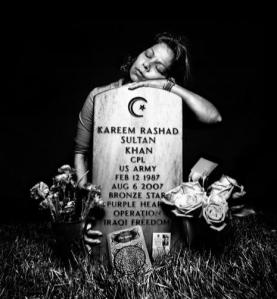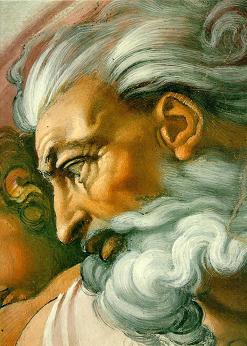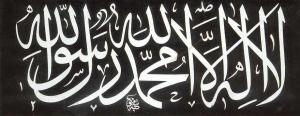 The burka – or burqa as some write it – is the head-to-toe covering that some Muslim women wear over their clothes when they go out in public. Sometimes all you can see is their eyes, but sometimes even their eyes are covered (with a netting that they can see through).
The burka – or burqa as some write it – is the head-to-toe covering that some Muslim women wear over their clothes when they go out in public. Sometimes all you can see is their eyes, but sometimes even their eyes are covered (with a netting that they can see through).
Burkas are mostly seen in Afghanistan and South Asia – Pakistan, India and Bangladesh. In India only one Muslim woman in 20 might wear it; in Afghanistan under the Taliban all women were forced to wear it. In Pakistan it used to be quite common, but it has been dying out, especially in the big cities.
Even though some will argue it is not in the Koran, in most of the Muslim world hijab, or modest dress, is understood to be a religious duty or virtue for women (and, to a lesser degree, for men).
The form that hijab takes is different from place to place. The burka is the most extreme form.
In Iran women wear a chador, which covers everything but their face, hands and feet. In some Arab countries women wear the abaya which does the same thing. In other places, like Turkey, women wear just a headscarf. And some Muslim women dress in a completely Western fashion, though with more of their body covered than Western women.
Burkas, abayas and chadors are just for going out in public. They are something women wear over their clothes. When they are at home they take them off and you find out that they are not dressed quite so plainly. When Neda died during the election protests in Iran in 2009, for example, we found out that under her chador she was wearing blue jeans!
Governments sometimes force women to follow hijab, like the Taliban or Iran under Islamic rule. Yet others have forced women to do the opposite, like Iran under the shah.
In France it has been against the law to wear a burka to public school since 2004. And now they want to go even further and outlaw it altogether. In 2009 President Sarkozy said:
The issue of the burka is not a religious issue, it is a question of freedom and of women’s dignity. The burka is not a religious sign, it is a sign of the subjugation, of the submission of women. I want to say solemnly that it will not be welcome on our territory… I tell you, we must not be ashamed of our values, we must not be afraid of defending them.
This only makes sense to me as a piece of xenophobia: Muslims make him feel uncomfortable.
For many Muslim women it is in fact a matter of religion. And keeping themselves covered up from the eyes of men is a matter of dignity. Even in the West, modest dress was seen as part of a woman’s dignity until the 1900s.
Your religion – or even a lack of religion – is part of who you are. To be told you cannot express it when you are hurting no one goes against one’s freedom and dignity.
See also:














